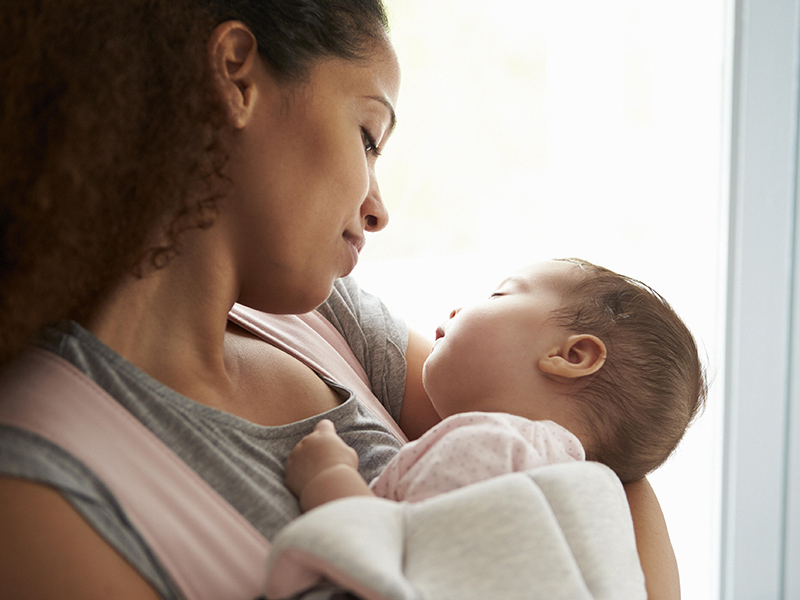In the first six months of their life, your baby is getting used to the world. They are totally dependent on you to meet their every need. When you are meeting their needs, your baby learns to trust and feel they are cared for. This is the beginning of their emotional and social development.
Your baby sees themselves through your eyes. They don’t have any prior experiences to build their sense of self. They will expect to be treated how you treat them. Think about the messages you are sending your baby by how you respond. Will they feel loved and cherished or lonely and scared? How the primary caregivers in their life respond to them can affect them for the rest of their lives.
When you respond to your baby, you are part of a dance. Your baby has asked for a need to be met, and you follow with a response. You are dancing with each other. Another way of thinking of it is like a tennis match. Your baby “serves” their request, and your response is the “return.” Experts call this interaction “serve and return” which is crucial for healthy brain development.
Social-emotional development by month
Babies show their emotions through their vocalizations, body language and facial expressions. The more you get to know your baby, the easier it will be to figure out their needs.
0-2 months
You’ll start to see your baby using their body to either look at you for engagement or turn away when getting over-stimulated. Your baby will start their social smile around 2 months old. They will smile when they see a familiar face or in response to your smile. When they are unhappy or feeling insecure about something they may react by crying, frowning, squirming and stiffening their bodies.
2-4 months
By 4 months old, your baby will smile spontaneously and show excitement using their bodies and facial expressions. They are born to be social, but their unique temperament also plays a part in who they are and how they respond to others. Some babies are more outgoing than others. Others are calmer or less interested in playing. Respect the messages they are sending you both vocally and with their body language and facial expressions.
4-6 months
Around 6 months old, your baby typically knows who is familiar and who is not, and you may start seeing some stranger anxiety develop. This is totally normal, so be ready to give extra cuddles and reassurance if you see this occurring.
Positive social and emotional experiences lay the foundation for your child’s future relationships. You don’t need fancy or expensive toys to create a bond with your baby. Time, love, attention and responsive caregiving are keys to creating strong attachments. It’s an investment in your baby’s future.
Learn more
- Why your baby may be crying, and tips for soothing
- The best toy for your baby is your attention
- Can you spoil a baby, or is that a myth?
…
Posted In Children's, Family Medicine, Parenting
